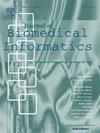BiomedRAG: A retrieval augmented large language model for biomedicine
IF 4
2区 医学
Q2 COMPUTER SCIENCE, INTERDISCIPLINARY APPLICATIONS
引用次数: 0
Abstract
Retrieval-augmented generation (RAG) involves a solution by retrieving knowledge from an established database to enhance the performance of large language models (LLM). , these models retrieve information at the sentence or paragraph level, potentially introducing noise and affecting the generation quality. To address these issues, we propose a novel BiomedRAG framework that directly feeds automatically retrieved chunk-based documents into the LLM. Our evaluation of BiomedRAG across four biomedical natural language processing tasks using eight datasets demonstrates that our proposed framework not only improves the performance by 9.95% on average, but also achieves state-of-the-art results, surpassing various baselines by 4.97%. BiomedRAG paves the way for more accurate and adaptable LLM applications in the biomedical domain.

生物医学检索增强大语言模型。
检索增强生成(retrieve -augmented generation, RAG)是一种通过从已建立的数据库中检索知识来增强大型语言模型(LLM)性能的解决方案。,这些模型在句子或段落级别检索信息,可能会引入噪声并影响生成质量。为了解决这些问题,我们提出了一个新的生物医学rag框架,该框架直接将自动检索的基于块的文档馈送到法学硕士中。我们对使用8个数据集的四个生物医学自然语言处理任务的BiomedRAG进行了评估,结果表明,我们提出的框架不仅平均提高了9.95%的性能,而且达到了最先进的结果,超过了各种基线4.97%。生物医学rag为生物医学领域更准确和适应性强的法学硕士应用铺平了道路。
本文章由计算机程序翻译,如有差异,请以英文原文为准。
求助全文
约1分钟内获得全文
求助全文
来源期刊

Journal of Biomedical Informatics
医学-计算机:跨学科应用
CiteScore
8.90
自引率
6.70%
发文量
243
审稿时长
32 days
期刊介绍:
The Journal of Biomedical Informatics reflects a commitment to high-quality original research papers, reviews, and commentaries in the area of biomedical informatics methodology. Although we publish articles motivated by applications in the biomedical sciences (for example, clinical medicine, health care, population health, and translational bioinformatics), the journal emphasizes reports of new methodologies and techniques that have general applicability and that form the basis for the evolving science of biomedical informatics. Articles on medical devices; evaluations of implemented systems (including clinical trials of information technologies); or papers that provide insight into a biological process, a specific disease, or treatment options would generally be more suitable for publication in other venues. Papers on applications of signal processing and image analysis are often more suitable for biomedical engineering journals or other informatics journals, although we do publish papers that emphasize the information management and knowledge representation/modeling issues that arise in the storage and use of biological signals and images. System descriptions are welcome if they illustrate and substantiate the underlying methodology that is the principal focus of the report and an effort is made to address the generalizability and/or range of application of that methodology. Note also that, given the international nature of JBI, papers that deal with specific languages other than English, or with country-specific health systems or approaches, are acceptable for JBI only if they offer generalizable lessons that are relevant to the broad JBI readership, regardless of their country, language, culture, or health system.
 求助内容:
求助内容: 应助结果提醒方式:
应助结果提醒方式:


